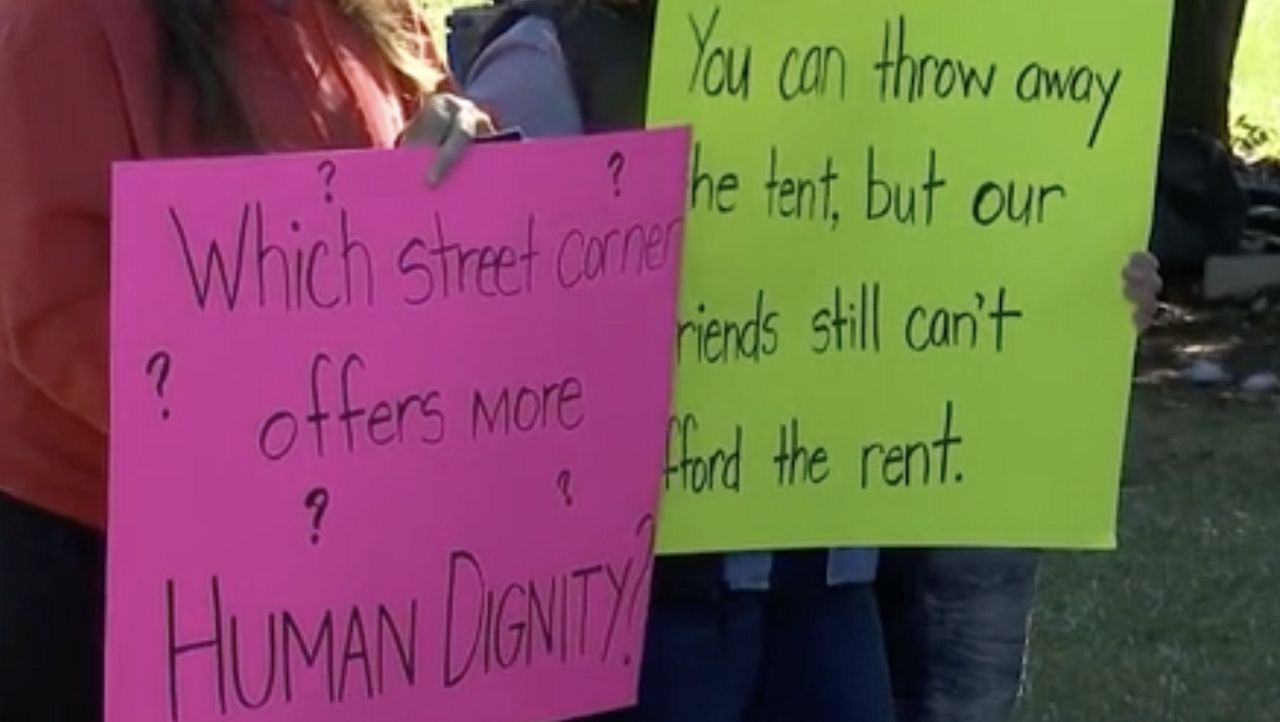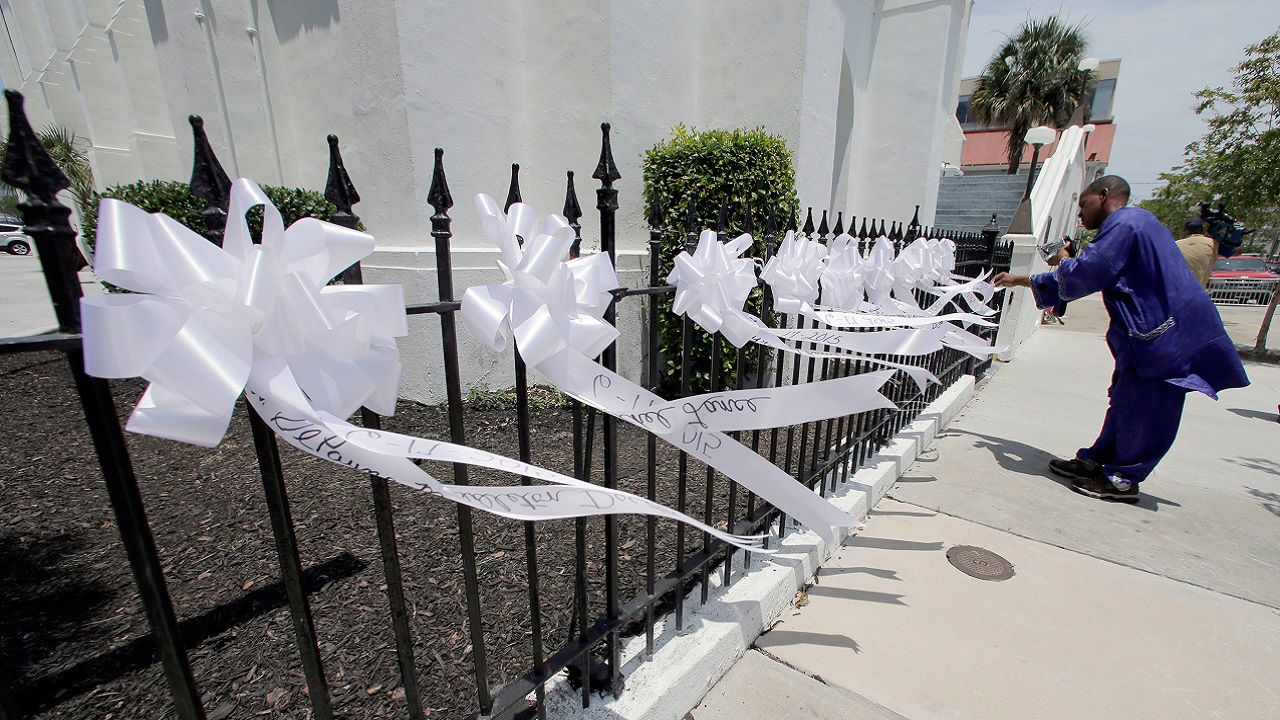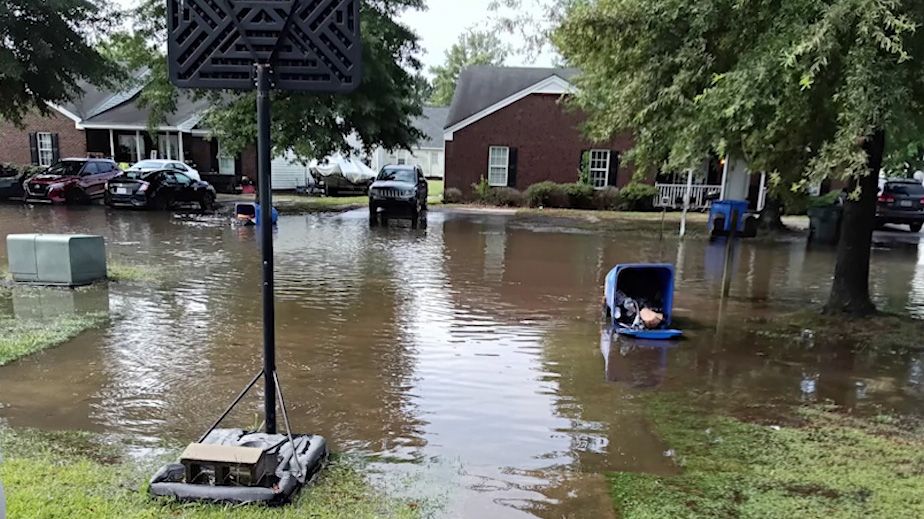Raleigh and Garner police cleared out a homeless encampment of about 40 people at the intersection of U.S. 401 and U.S. 70 Tuesday in what advocates are calling “an act of unmitigated cruelty.”
What You Need To Know
- Raleigh and Garner police evicted about 40 people from a homeless encampment at the intersection of U.S. 401 and U.S. 70 Tuesday
- Police say people living in the encampment declined services, and a recent uptick in crime led to the eviction
- Supporters say that the people should be allowed to live in the empty lot, and people living in the encampment emphasize they have nowhere else to go
- The U.S. Supreme Court heard arguments in a case on if cities can punish people sleeping on public land with fines or jail time Monday
Advocates for people living in the encampment denounced the actions of Raleigh and Garner police, saying that every Triangle municipality has failed “to address the need for affordable housing and shelter.”
The Raleigh Police Department held a press conference Tuesday morning as residents of the encampment peacefully packed their belongings and prepared to leave.
The department said that Raleigh police and the state have been working with people at the encampment since the beginning of the year, providing assistance and connecting them with resources.
Raleigh police’s ACORNS unit, which consists of both social workers and police officers, held three outreach sessions at the encampment, according to the police department. The North Carolina Department of Transportation said since being made aware of the encampment in February, ACORNS staff and other nonprofits visited the site multiple times, offering resources to those that live there.
But police say people living in the encampment have consistently declined services. Over the past two weeks, police deemed the area unsafe due to an uptick in criminal activity in the area, according to a statement from NCDOT.
Raleigh police posted notice to vacate signs around the encampment Friday, informing residents they had to leave by 10 a.m. Tuesday.
But advocates say that residents of the encampment on the Raleigh-Garner border have nowhere else to go.
"Where do you want us all to go? We can't even disappear into the woods no more,” John “Horse” Valdez, who is battling cancer and lived in the encampment with his wife, son and two dogs, said in a press release. “They come and seek you out. My question to them is, 'Where all's these homeless people supposed to go?'"
Supporters of the encampment held their own press conference Tuesday morning, advocating that people be allowed to stay in the encampment.
Patrick O'Neill, one of the supporters of the encampment, says that people need a place to stay, and they found one in the empty lot. He also says that groups like Raleigh police can’t offer the homeless people much, because what they need is low-income housing, and he says that doesn’t exist in Wake County.
"Raleigh should not prevent anyone from pitching their tent on public land unless an alternative is provided, and help is provided to relocate the unhoused to safer quarters," said Marcia Timmel, another supporter, in a press release sent out by supporters.
O’Neill and other supporters gave people rides and helped them pack Tuesday. O’Neill says the eviction marks the end of what had become a community.
“People were really finding some love and support here, and there’s really sadness that it’s coming to an end,” O’Neill said.
O’Neill has been bringing food to people in the encampment, and said that every person he talked to told him this is not the first time they have been forced to leave a place.
"People just want that feeling of humanity,” Valdez said. “We're not animals that go off by themselves when they're sick and dying. We don't want to hide from the world. We go to where people are just like us. This is a safe place; now they're pushing us out where it's not safe."
All of this comes during the National Week of Action to Oppose the Criminalization of Homelessness and a U.S. Supreme Court hearing that could prevent another eviction like this from happening.
The Supreme Court heard arguments Monday in a case over whether cities can punish homeless people with fines or jail time for sleeping outside of public property.
Lower courts have previously ruled that fining or jailing someone for sleeping on public land when there is no adequate shelter available is cruel and unusual, violating the Eighth Amendment.
More than 650,000 Americans are estimated to be homeless, the highest since the annual point-in-time survey began in 2007. Homelessness rose by 12% last year.
The Supreme Court is expected deliver a decision on the case this summer.








